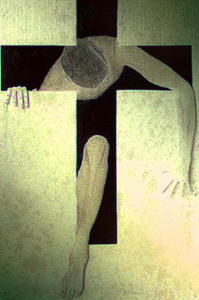 Many Christian advocates for social justice cry out for deconstructing privilege and the privileged from a platform of privilege themselves, a place of power, celebrity, notoriety, and/or money (not to exclude address, i.e., where they live and the resources at their disposal). Over and over, their advocacy seems to contradict their status and lifestyle. These same advocates for social justice use the Bible (and for the most part I align and, even, agree with much of their message; not so much their means, which are, for the most part, not biblical, but mostly cultural, political, and status resourced). Here’s what strikes me: The original advocacy (i.e., the gospel of Jesus, the Messiah) and how it changed things, how it deconstructed, and, then, reconstructed habits and lives and attitudes did not occur from the place of power, but from the place of powerlessness. We learn this, first, from the humanizing (i.e., incarnation) of the One who was in the form of God from all eternity taking on the form of a slave (Phil 2); and, second, from the small gatherings of believers in homes (living rooms), we now call churches, made up mostly of the poor and powerless in the early decades of the church. Of course, there were some wealthy among them and some who provided homes for churches to gather; yet, here, too, as Christians and people that used their homes for believers to gather would have lost their status and social standing (at least in part), leaving them to be classed among the powerless and the bottom-demographics of the Roman Empire and Greek world. It would be nearly three centuries before the wealthy, educated, and powerful had control over the affairs of the church. No longer in homes. State (i.e., Empire) sanctioned and often constructed buildings became the addressed-venues of churches. Highly trained and Empire sanctioned clergy had authority over the church. No longer food for a supper, but tokens of bread and wine were used and guarded and distributed by this now elite, often cosmopolitan, clergy. Now, the State (or Empire) controlled the advocacy, that is the results of the gospel. The poor and the powerless among the Christians were separated from their more wealthy, educated, and affluent Christian brothers and sisters, by design and by default. Yet, it was not so in the beginning and for about 300 years of church history. Obviously the shift crept in, but was not fully established until the Emperor “converted” (but was not baptized) and the Empire started creating a space of power for the leaders of the church. My concern here is not to dwell on how the church came to know power and has been able to produce power and the powerful, but to highlight that our present social justice advocates do so from a platform of power that the very gods of empire (call it as you will, colonialism, Christendom, American upward mobility—no matter, it is the powers that) has given (such power) to them. Few seem to divest themselves of power and privilege (as did Jesus, whom they say they follow) and take on the form of a slave and being obedient to the point of death, even death (i.e., dying to self) on a cross (again, cf. Phil 2) on which they are called to carry; but, yet, offer, still, their justice rhetoric and (really what is often simply) political vision from a place of culturally designed privilege and power. Until this is recognized (and deconstructed I might add), such advocacy will rely on the power of the State to enforce their vision (no matter how clothed in biblical language it might be). It is my humble opinion that we need to rethink church, especially as the place where systemic change happens, even though it is a place (and the space) of the poor and powerless. (Well, it should be.) Of course, plenty of “churches” need repentance, an attitude of lament, and a call back to the gospel (liberal, progressive, and conservative churches), but, nonetheless, it is, still, the church (local churches) where the alternative of God’s kingdom is to be lived (by believers) and observed (by outsiders). (Not “look how we vote” or “look how we protest”; but “look how we live and fellowship as strangers and unequals, as brothers and sisters in Christ, a wholly new family in Christ.”) The church, a church, local churches scatter from street to street, neighborhood to neighborhood, places where strangers and unequals meet over a meal (break bread) and celebrate (raise a cup) that they have no other Lord than the risen Messiah, who sits at the Father’s right hand (their only source of power, which is lived by denying themselves and taking up a cross). Such advocacy should not rest in individuals who have forms of cultural power at their disposal, but an advocacy that stems from a gathered-household of faith. Social justice advocacy should be a lived-church thing (and for that matter, the place of no power, no culturally derived and given power). Social justice is a lived-church advocacy. Our advocacy for social justice, like any of our boasting (our culturally, socially, and economically derived desires, vision, or means of power), needs solely to be first and foremost “in the Lord” and made from a willing place of foolishness. Our social justice advocacy platform, the place where we are “like the scum of the world, the refuse of all things,” this is the place, Jesus’ church, local churches, find themselves and where authentic social justice advocacy has its gospel platform.
0 Comments
Your comment will be posted after it is approved.
Leave a Reply. |
AuthorChip M. Anderson, advocate for biblical social action; pastor of an urban church plant in the Hill neighborhood of New Haven, CT; husband, father, author, former Greek & NT professor; and, 19 years involved with social action. Archives
February 2024
Categories
All
|
Pages |
More Pages |
|
 RSS Feed
RSS Feed